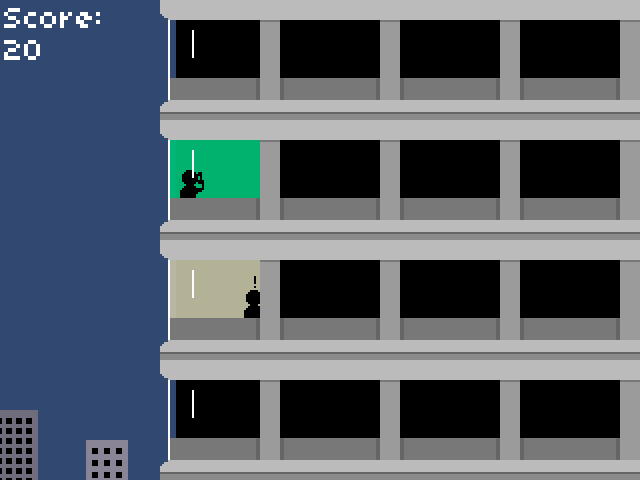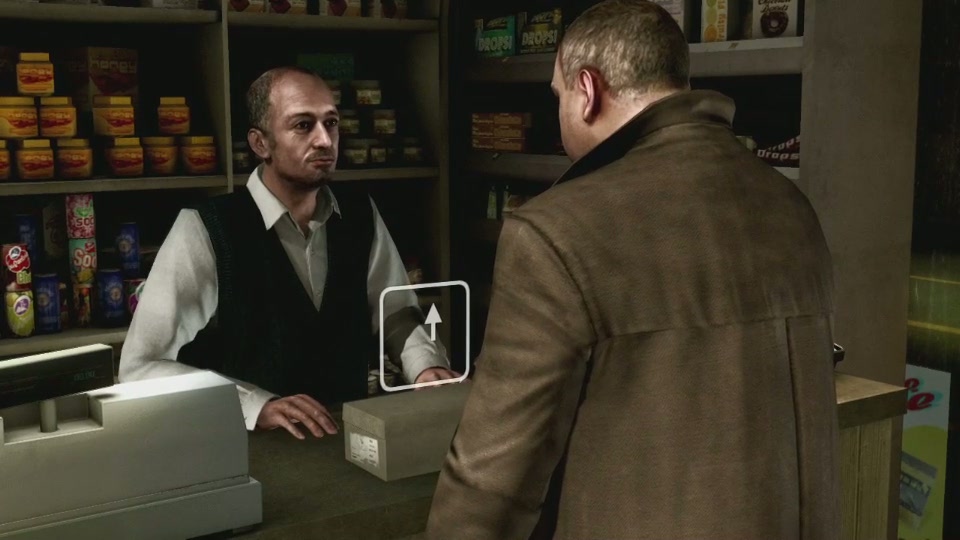In Defense of Tedium: When Fun Isn't Good Enough
By DevWil 9 Comments
Let me quickly preface this blog by saying that, in the following text, when I use the word “game”, I’m using it to describe any sort of digital, interactive thing that at least resembles a game.
I participated in my first Ludum Dare this past weekend, and managed to pump out a game within the first seven hours of the competition (and another one in the final few). Obviously, it’s not a complex game, as LD48 entries tend not to be. It’s called Expecting a Call, and I’m pretty pleased with it, especially in the context of the competition’s theme: Alone.

I’d say reception has generally been positive, but I would also place the consensus opinion around a sentiment like, “Very clever application of the theme, but it needs work to be more fun!” The problem is that my clever application of the theme is totally dependent on how much fun it isn’t.
The core conceit of the game is that sixteen different people living in a high-rise are anxiously expecting phone calls, and you click on their apartment when their phone rings to have them answer. It was meant to illustrate the arguably lonely nature of technological communication, and it’s further contrasted against the fact that these people have (at least) fifteen other people living in close proximity to them.
So, even though I’m closing the door on a lot of interpretation and I wish more games invited people to walk away with their own opinion on what it’s about, it really shouldn’t be surprising that, when I set out to make a game about the unsatisfactoriness of telephone communication, I made an unsatisfying game. Could I have made Expecting a Call more mechanically dense? Sure. I could have implemented any number of conventional gameplay systems. However, every feature carries meaning, whether you like it or not. What does it mean if I end players’ games after missing a certain amount of calls? I considered such a lose condition, but I wasn’t sure how it would contribute to how the whole of the game could be interpreted. If my game valuates missed phone calls as bad, then what’s the point of criticizing the telephone as a communication medium? These are the relationships between rules and fiction that most game developers don’t bother to ask themselves, and it may be the most significant hurdle that games face as a serious medium.
For an industry/community that sees immersion as something to aspire to, people seem to think I’ve made a design mistake when I make a game like Expecting a Call, which actually creates a very strong connection between the player experience and the fiction of the game. Many people have said of the game, “It was fun at first, but then I realized how empty of an experience it was.” I don’t know that I could ask for a better reaction to it, honestly. One of my primary interests as a game designer is to create models that are realistic to such an extent that people realize the unsatisfactory/unhealthy/unethical nature of certain real-world phenomena, so fun isn’t always a priority. Valuation and interactivity are.
If people play a game that is designed to reward shooting brown people in the head, I won’t argue that it necessarily encourages people to feel positive about violence towards specific ethnicities (though I think it may to some extent), but it certainly doesn’t discourage such feelings. On the other hand, if I make a game about violence and it’s not fun, people will come out of the experience feeling like violence is less fun than they did before they played my game. It’s just a theory I have, but I don’t think it’s unreasonable.

I feel like we have a great chance to have our medium mature past power fantasies, which means not treating winning or having fun as ends in themselves. When someone tells me one of my games isn’t a ton of fun (which is typically a fair assessment, admittedly), I don’t think it’s unfair to compare the more critical people in that set to those who would criticize a movie for not having a happy ending.
I don’t think it’s impossible to make a viscerally satisfying game that also has a sad and/or meaningful ending (see: Braid, Limbo), but the fact remains that there aren’t enough Ingmar Bergman types making games. Our auteurs tend not to achieve much more than someone like Kevin Smith (though there are certainly a handful of exceptions). Sure, their games may have a modicum of emotionality, but they don’t invite the same kind of scrutiny or involvement that a classic Bergman film would. At best, we’re surprised by something on the level of a Chasing Amy or Clerks (if those two are Smith’s peaks), but we really tend to be inundated with games more comparable to Mallrats. The protagonist gets what he wanted from the beginning, and that’s the end of it.
Comparing games to movies is dangerous not only because it invites developers to continue making overly cinematic software, but also because a fun movie has an inherently better chance of being engaging than a typical game that sees fun as an end in itself (while also having narrative ambitions).
If, say, Indiana Jones is in a bind and says, “I’ve got an idea”, there is going to be some narrative tension because you want to see how exactly he’s going to get out of whatever scrape he’s in, and there’s a real chance that things won’t go to plan. Compare this to a typical story-driven game, in which there’s no tension, as you know which sequence of actions will resolve a conflict before these actions are even executed. Everything is telegraphed by the goals the game gives you. Also, when a protagonist/player is assigned an objective, we can read this as not just as possible, but inevitable if the player doesn’t give up on the game. We don’t wonder if things will go wrong, because subverting player expectations is not at all common.
We shouldn’t scoff at the effort to make games that are more expressive than they are mechanically delightful. Predictable responses to player input are what make a game feel fair and I think there’s definitely room for that kind of game, but it also makes pretenses of drama incredibly hollow compared to other media.
One solution seems to be to stop treating the player and the protagonist as separate. Playing through a story should involve play in the theatrical sense. To inhabit a character that has bad things happen to him or her, sometimes it should be appropriate to make unfun things happen to the user as a person playing the game. We see this approach here and there, but it’s not nearly prevalent enough for my tastes.

Maybe this means making shorter games, or maybe unfun sections need to be mitigated by quick reversals of fortune (expressed to the player as fun). I’ve taken the former approach so far. I’m sure that a lot of people won’t like my games, but at least I’m not wasting hours upon hours of their time just so they get a complete impression of the thing I made.
As such, while this piece is titled “In Defense of Tedium”, we should be sure not to mistake tedium for laboriousness. There are a lot of games that feel like work because of uninspired level design and storytelling. I would characterize tedium as something different, something that may highlight the reality of a particular activity.
As pretentious as you could call all of this sentiment and my portfolio in general, at least I don’t throw dozens of levels at people and expect them to play through them just because they’re there. That’s not a good enough reason to play something anymore, if it ever was. There are too many people making too many technically competent games for independent game developers not to try to make unusual, personal pieces of software. If you’re not beholden to profits like a studio owned by a publisher would be, then what’s holding you back?

9 Comments